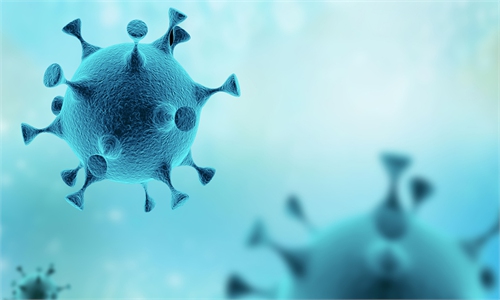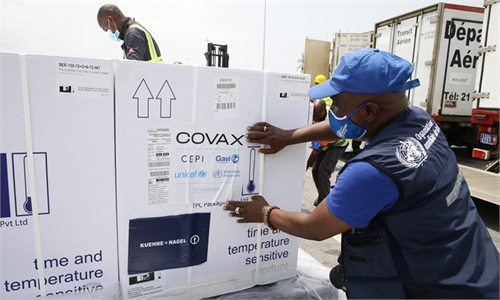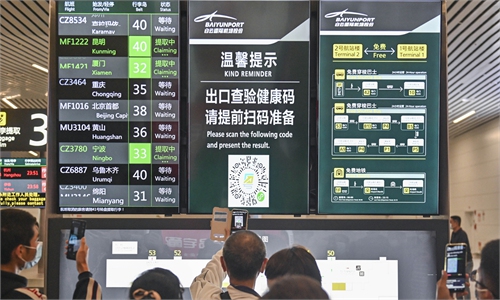Why the world's first COVID-19 vaccine volunteers are such massive advocates for Chinese-produced jabs

As China pioneers in COVID-19 vaccine research and more than 145.4 million people in the country have received the vaccines, the first batch of volunteers, in perfect health up until now after two doses, who received the world's earliest batch in clinical trials, are demonstrating the efficacy and safety of the vaccines.
China has approved four COVID-19 vaccines for market, and a total of seven Chinese vaccines are being assessed by the World Health Organization for approval.
The journey started on March 16, 2020, when clinical trials started for the Ad5-nCoV, a single-dose recombinant adenovirus vector vaccine jointly developed by CanSino Biologics and researchers from the Institute of Military Medicine under the Academy of Military Sciences led by Chen Wei. It's the world's first vaccine candidate that entered humans clinical trials.
The first batch of 108 volunteers participated in this trial in Wuhan, a then coronavirus hotspot in Central China's Hubei Province, and they were called the "108 pioneers" or the "108 heroes" by the public who admired them for their courage in a brand new vaccine in development.
None of the 108 people have had [serious] adverse reactions thus far, a source at Jiangsu Provincial Center for Disease Control and Prevention (Jiangsu CDC), which collects and analyzes the health and antibody data of the volunteers, told the Global Times.
More than 80 percent of the 108 people got one more shot of the vaccine in September 2020 for further research, and their health conditions are still being monitored by scientists today. "We will release data of these people after [the monitoring] is finished," the source said.
China's self-developed COVID-19 vaccines have been proved safe and effective through numerous trials and inoculation rollouts globally.
"After more than a year, I even feel I'm in better physical condition now," Zhu Aobing, one of the 108 volunteers in this first-ever trial, told the Global Times.
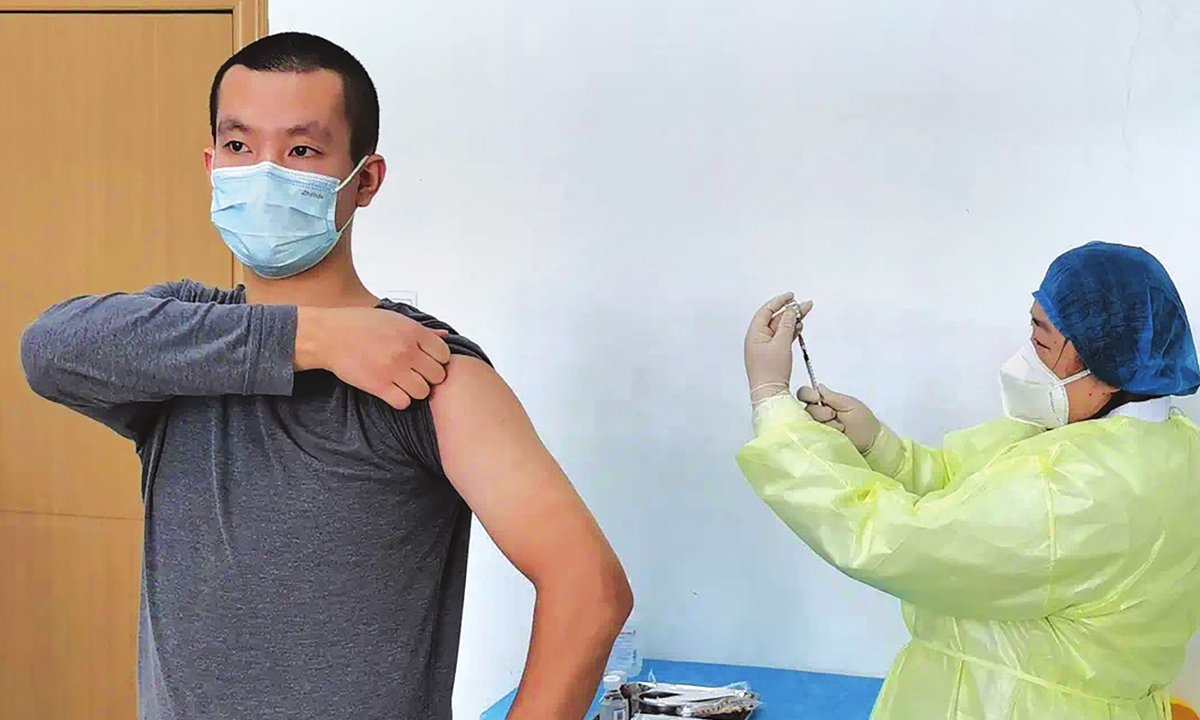
Zhu Aobing
'It's safe'
The 108 individuals including Zhu were recruited by Chen's COVID-19 vaccine research and development team in Wuhan from some 5,000 candidates who voluntarily enrolled in the trials. They were ordinary Wuhan citizens including university students, service staffers, and freelancers, aged between 18 and 60, the vaccine team revealed.
Zhu and other volunteers were inoculated in March 2020, underwent a 14-day quarantine for observation, and then had some six blood tests and follow-ups in the next six months.
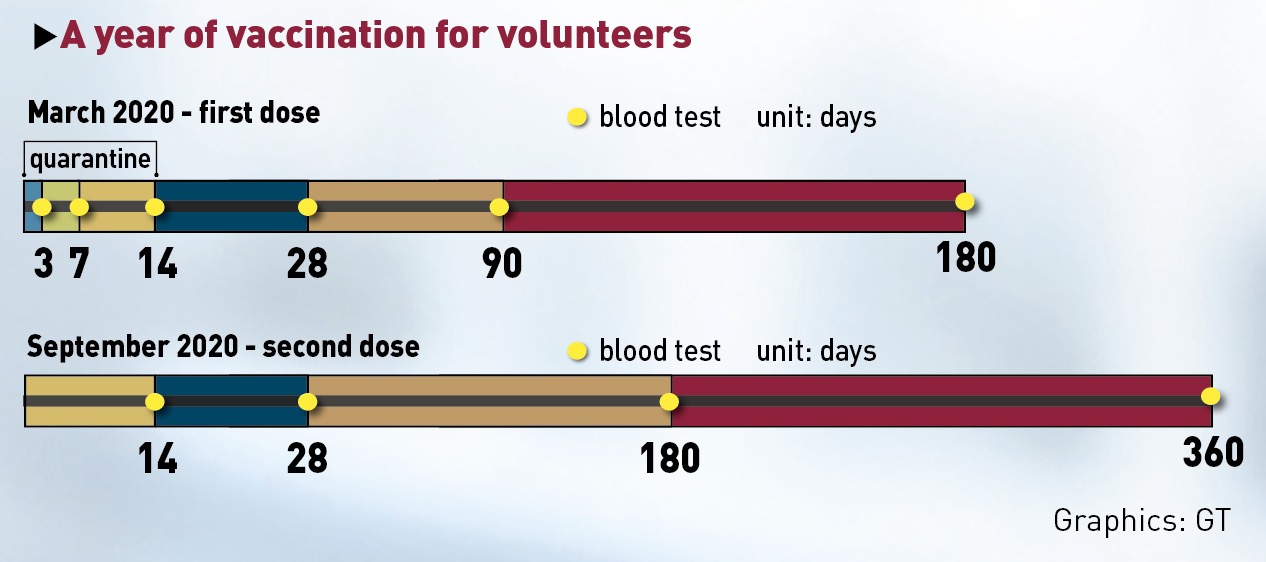
Graphic: GT
The landmark Phase-I trial was declared a success, as the vaccine "produced virus-specific antibodies and T cells within 14 days of injection" in all the 108 volunteers, said an article the vaccine team published in the science journal Lancet on May 22, 2020.
"No serious adverse event was noted within 28 days post-vaccination" in this trial, the Lancet's May 2020 article said. Most adverse reactions that were reported in all dose groups were mild or moderate in severity, including fever (46 percent of the volunteers), fatigue (44 percent), headache (39%) and muscle pain (17%), it added.
Zhu's number was "009" among all the 108 volunteers. This 28-year-old ex-soldier and college student happened to see the COVID-19 vaccine trial enrollment on WeChat on March 16, 2020 and registered soon after without hesitation. "I wanted to do something for my country and my hometown, Wuhan," he said.
Before being vaccinated on March 19, 2020, Zhu received a comprehensive check-up that included an Electrocardiograph (EGC), body temperature checks, liver function analysis, and a throat swaping. Zhu passed all the tests and was later put in the low dose (0.5 ml) group. "I didn't feel any discomfort after getting the shot that day," he recalled.
Volunteers Ren Chao (numbered "038"), a 36-year-old university administrative staffer, and Mo Shiqi (numbered "084"), a 30-year-old customer service personnel operator in the telecom industry, were put into the middle dose (1.0 ml) group and the high dose (1.5 ml) group respectively.
Mo enrolled in the trial program after hearing that "it lacked young females." She was nonetheless a bit apprehensive at first, worrying that the scientists may check the vaccine's effectiveness through "putting the COVID-19 patients and we the volunteers together in the same room, to find out whether we would be infected or not."
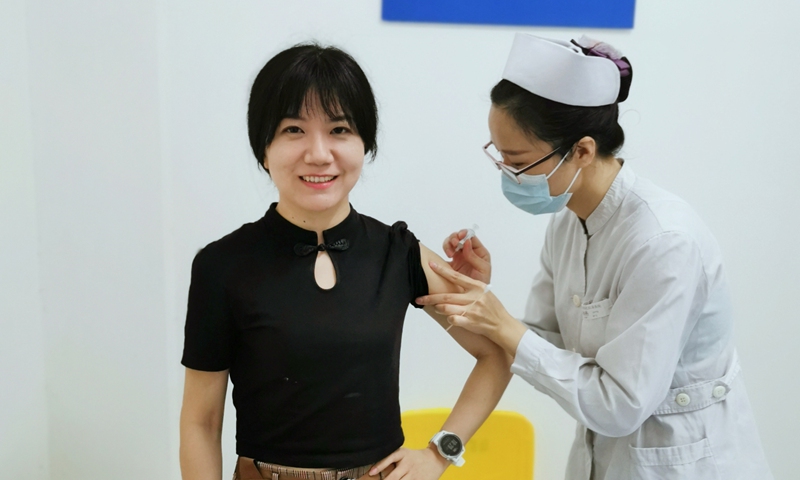
Mo Shiqi
Mo was soon relieved after she was smoothly vaccinated. During the following 14-day quarantine at a sanitarium in Wuhan, she and other volunteers remained in separate rooms, wearing an electronic thermometer on the body, and received daily visits from medical personnel. "None of us felt severely uncomfortable during the quarantine," Mo told the Global Times. "There were a few who said they had run a low fever or had body ached, but they all got better soon."
Even today, the 108 volunteers told the Global Times that they remain in a good and stable condition. In a WeChat group that has all the 108 people, they keep each other updated, and find that "everybody is fine," Ren said.
Including Ad5-nCoV, currently, there are four Chinese self-developed COVID-19 vaccines approved for the market. The other three are inactivated vaccines that had also been proved safe enough through lots of clinical trials before use in mass vaccination rollouts.
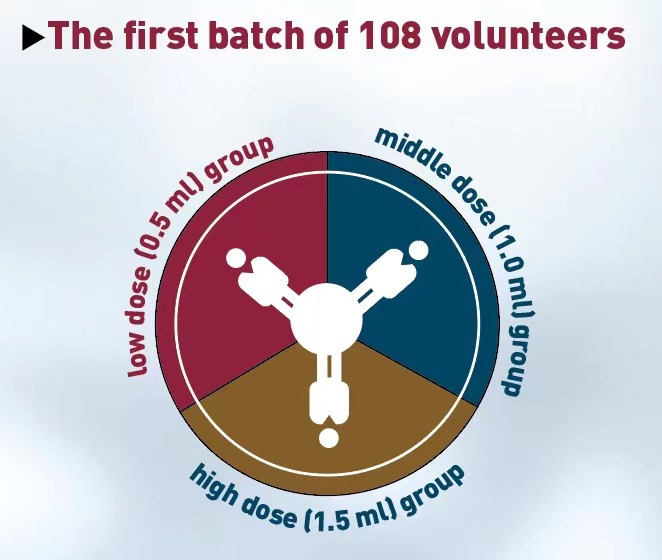
Graphic: GT
Experts reached by the Global Times said that China's vaccines are generally safe. "For those who have gotten vaccinated with the adenovirus vector vaccine developed by CanSino, if there is no particularly serious adverse reaction for more than three months, we can determine that the vaccine is safe," a Beijing-based immunologist who prefers not to give his name said on Wednesday.
Tao Lina, a Shanghai-based medical expert on vaccines told the Global Times that "the safety of inactivated COVID-19 vaccines is equivalent to that of other inactivated vaccines, and we have used this inactivated vaccine technology for 70 to 80 years, for which we have had a better understanding compared to adenovirus vector vaccines."
"In the vaccine industry, we generally think that one year of observation of those who were vaccinated using inactivated vaccines is enough to prove the vaccine to be very safe," Tao said. "In order to successfully develop a COVID-19 vaccine as soon as possible, China has adopted two technical routes - inactivated vaccines are relatively commonplace, while adenovirus vector vaccines are more advanced," Tao added. "Both are used so that in this way, we can ensure the highest possibility for developing a vaccine."
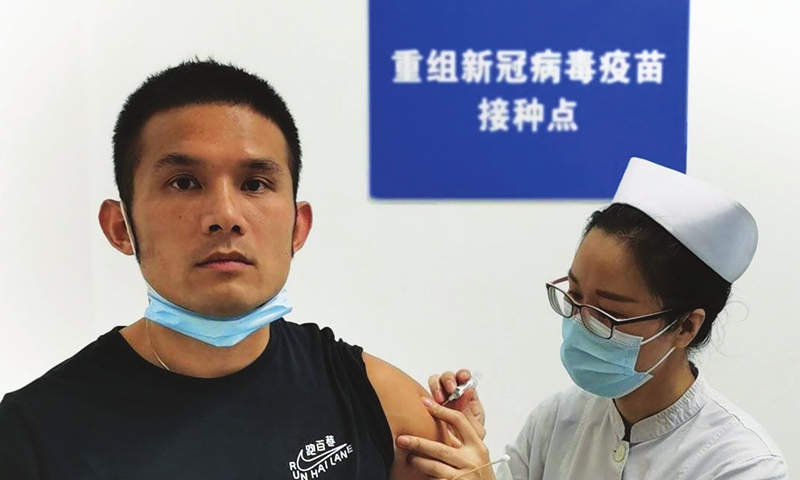
Ren Chao
'It's effective'
Sinopharm's two inactivated vaccines respectively showed 79.34-percent and 72.51-percent efficacies in their phase III clinical trials. Sinovac's inactivated COVID-19 vaccine, CoronaVac, shows 91.25 percent efficacy in Phase III clinical trials in Turkey, and 50.65 percent among medical workers in Brazil.
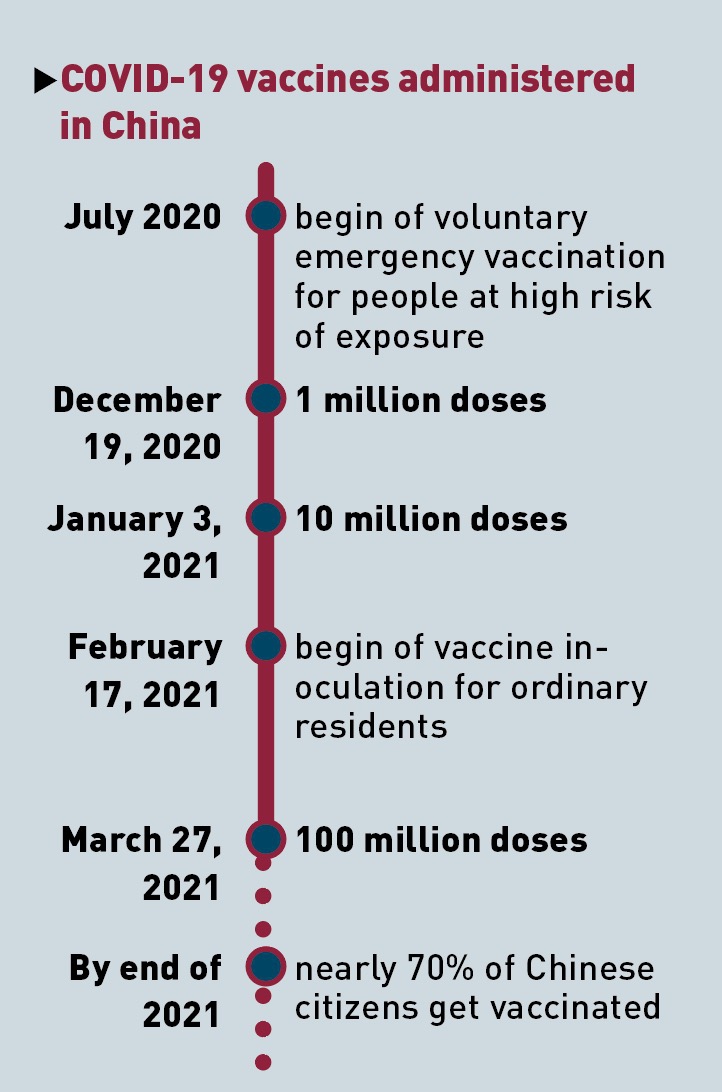
Graphic: GT
The protection rate of Chinese vaccine producer CanSino's single-dose COVID-19 vaccine Ad5-nCoV is reportedly 65.28 percent 28 days after vaccination, and 68.83 percent after 14 days of vaccination from a single injection.
There still needs to be more time to know the actual protection durations of the new COVID-19 vaccines, the Beijing-based immunologist told the Global Times. "It can vary from person to person, but from the perspective of the vaccine production process and the regularity of COVID-19 infection - for most people, it is possible to maintain a protection period from six months to a year," the immunologist predicted.
Tao thinks that for the vaccine, the longer the interval between vaccinations, the better the effect will be. "To respond to the current epidemic situation, it's acceptable that we get two injections within a short interval, maybe the injection plan will be adjusted later and we may even need a third shot," he told the Global Times.
CanSino Biologics' Phase I volunteers received one more shot in September 2020, six months after their first shot, and in March this year, CanSino revealed an exciting figure on the vaccine's enhanced immunity in those volunteers.
"The results showed that the antibody levels of the volunteers increased by more than 10 times after getting the second shots," 21st Century Business Herald quoted a CanSino Biologics manager as saying on March 19.
Zhu, Mo, and Ren voluntarily received a second dose of the vaccine in September 2020. They are under a longer observation that requires them to have regular blood tests and follow-ups for another year.
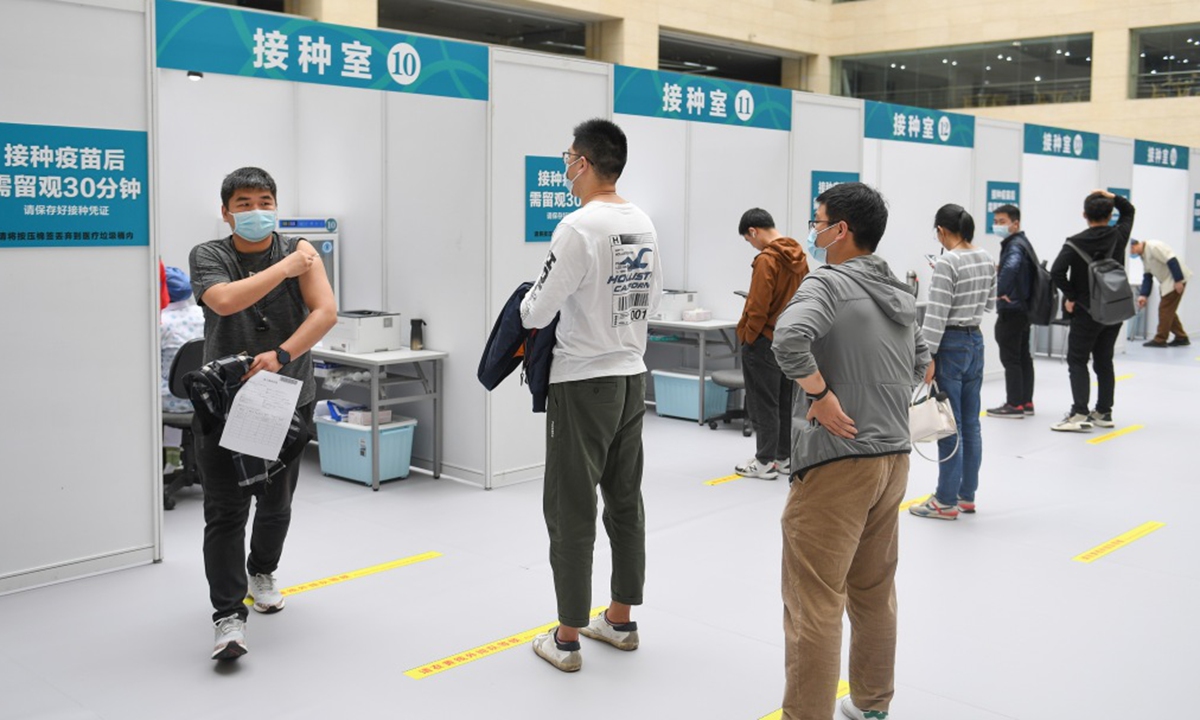
People queue to get vaccinated in Hangzhou, East China's Zhejiang Province on April 1. Photo: IC
"We believe that being part of the vaccine development program is a meaningful thing," Ren told the Global Times, saying he got the second shot also because he was curious about how much his antibodies against the COVID-19 would grow accordingly.
Ren's result surprised him. "The data showed my antibodies were over 20 times more [than before receiving the second dose]," Ren recalled, describing the two doses he had received as "shampooing hair twice" - "the second time the shampoo creates a lot more foam, and you feel your hair getting much cleaner," Ren laughed, saying his sense of security dramatically increased after the second dose. "I feel I am no longer afraid of COVID-19 at all."
Currently, China only has a vaccination rate of 4 percent, China's top medical advisor Zhong Nanshan recently told the media, calling for people to get vaccinated.
Many vaccine and public health experts have pointed out that considering the current global pandemic situation, it is urgent and necessary for the Chinese public to get inoculated to achieve herd immunity as early as possible.
Some of the 108 volunteers are now active on social media in appealing for people to get vaccinated. "Look at us, we are the first batch of people on the globe who were inoculated, and we are all very safe and healthy," Mo said.
"Hope more people can reduce their unnecessary worries about the vaccine, and go to get inoculated as soon as possible."
Hu Yuwei contributed to this story

